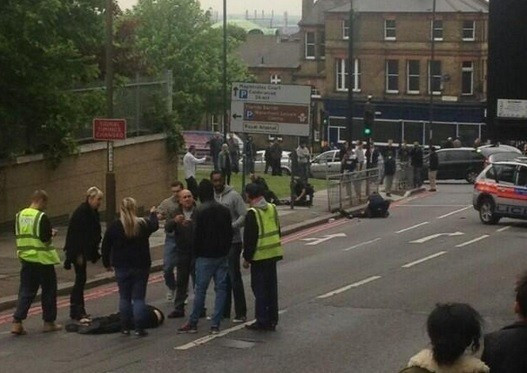Snooper's Charter Would Not Have Stopped Woolwich Terror Attack - MI5
The Snooper's Charter would be more effective in gathering evidence after a terrorist incident than helping prevent it, according to senior MI5 officials.

Speaking to The Independent, MI5 officers said the proposed powers the Communications Data Bill would have given authorities would not have helped to prevent the murder of soldier Lee Rigby.
In the aftermath of the attack, there were renewed calls for the bill to be resurrected, having initially been dropped after Deputy Prime Minister Nick Clegg and the Liberal Democrats voiced strong opposition to the changes being proposed.
Dubbed the Snooper's Charter, the bill would give police more power to track suspects' use of email, instant messaging services like WhatsApp and VOIP services like Skype.
Initially Labour peer Lord Reid and former independent reviewer of terror laws Lord Carlisle appeared on the BBC's Newsnight calling for Clegg and the LimDems to drop their opposition to the Bill, and at the weekend Home Secretary Theresa May suggested the Bill was "essential for the intelligence agencies" to combat the threat of terrorism.
"Cheap argument"
However the senior sources speaking to The Independent labelled this attempt to use the Woolwich attack to help resurrect the Snooper's Charter a "cheap argument." The officials went on to say the Bill would in fact be of more use to those investigating what happened in Woolwich than to those who are seeking to prevent similar events from happening again.
Woolwich suspects, Michael Adebowale, 22, and Michael Adebolajo, 28, were both known to the MI5 and it was revealed today that the head of the agency Andrew Parker has written to the Parliamentary Intelligence and Security Committee to inform them of exactly the extent of their knowledge of the two men.
Chairman of the committee, Sir Malcolm Rifkind said it would be unfair to blame the MI5 for what happened last week: "I don't think they're in the dock. I think that would be very unfair." Though he added the committee was going to get to the bottom of the MI5's work in relation to the suspects and the incident in Woolwich last week.
Speaking to Newsnight last week, Lord Reid said: "We have to learn proportionate lessons from what has occurred. We mustn't rush to judgement. But we must ensure that the police and the security services have for the future the tools they need which will enable them to prevent this kind of attack taking place.
Pause for thought
"I hope that this will give the government pause for thought about their abandonment for example of the communications data bill and possibly pause for thought about converting control orders into what are now called TPIMs [terrorism prevention and investigation measures], with a diluted set of powers."
Also appearing on Newsnight, Lord Carlise agreed with Lord Reid saying:
"We must ensure that the police and the security services have for the future the tools they need which will enable them to prevent this kind of attack taking place. I hope that this will give the government pause for thought about their abandonment for example of the Communications Data Bill and possibly pause for thought about converting control orders into what are now called Tpims, with a diluted set of powers."
Privacy watchdog Big Brother Watch said it was "wholly wrong for [Lord Reid and Lord Carlise] to be arguing for a change of policy before the details of what has happened in Woolwich are clear."
© Copyright IBTimes 2025. All rights reserved.





















